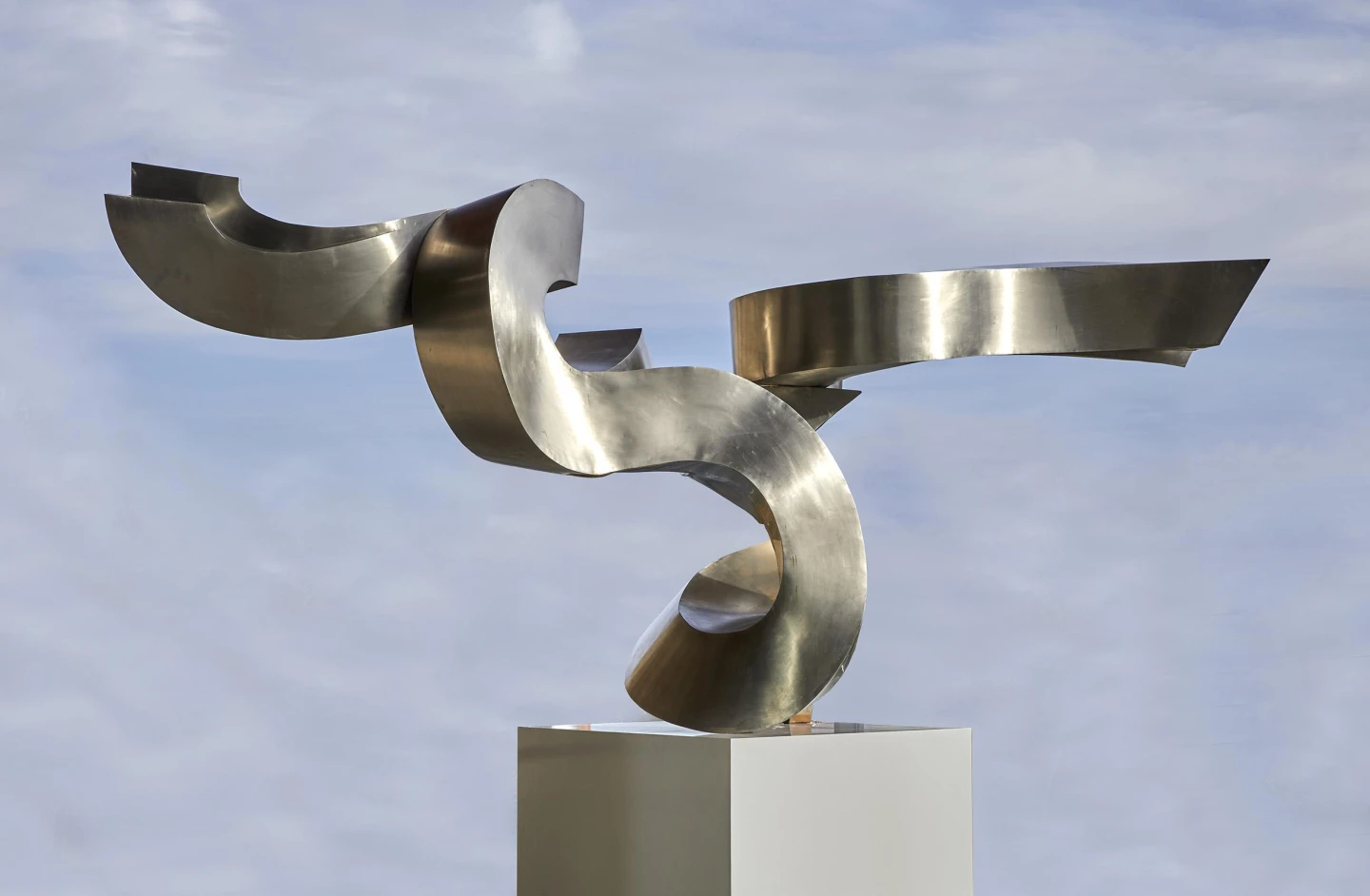
Mediterránea (10) (Mediterranean [10])
- Technique
- Welding and polishing
- Dimensions
- 180 x 425 x 110 cm
- Year of entry
- 1988
- Registration number
- AS03728
- Date
1971
- Observations
Entry date: 1988 (from the redistribution of the Museo Español de Arte Contemporáneo [MEAC] collection)
- Materia
Stainless steel sheet
- Serie
Mediterráneas (Mediterraneans)
Martín Chirino was one of the founders of the El Paso group, a contemporary avant-garde art collective, made up of key figures such as Antonio Saura and Manolo Millares, which rejected the realist aesthetics of Francoism in favour of a new materiality. His sculpture, which speaks of landscape and primitive forms, would make him one of the foremost European sculptors internationally in the final decades of the twentieth century.
This sculpture is the tenth piece from the Mediterráneas (Mediterraneans) series, with some formerly part of collections of the Chrysler Building in New York and the Middelheim Museum in Antwerp. The works are all made with laminated steel that is welded and painted and with industrial, automobile-style finishes. Its title refers to the artist’s trips to Italy and Greece in search of a certain classicism filtered through a dialogue held with the female figures of Aristide Maillol. The work possesses an expansive structure, with hollowed volumes that unfold to an oscillating rhythm in the space. Its ostensible abstraction becomes contradiction in adopting the form of a landscape with a chromatic finish that lends it an aquatic quality, characteristic of the artist’s Canary Island.
One of Chirino’s central themes was the challenge of gravity and here he gives it form with a kind of freed flight. In his words: “My sculpture has always been a concrete action that changes or alters reality. It is a reality in itself which brings with it a different order. I, represent. This iron of mine, alive from violence, is a representation of the whole world” (1987).
Manuel Segade